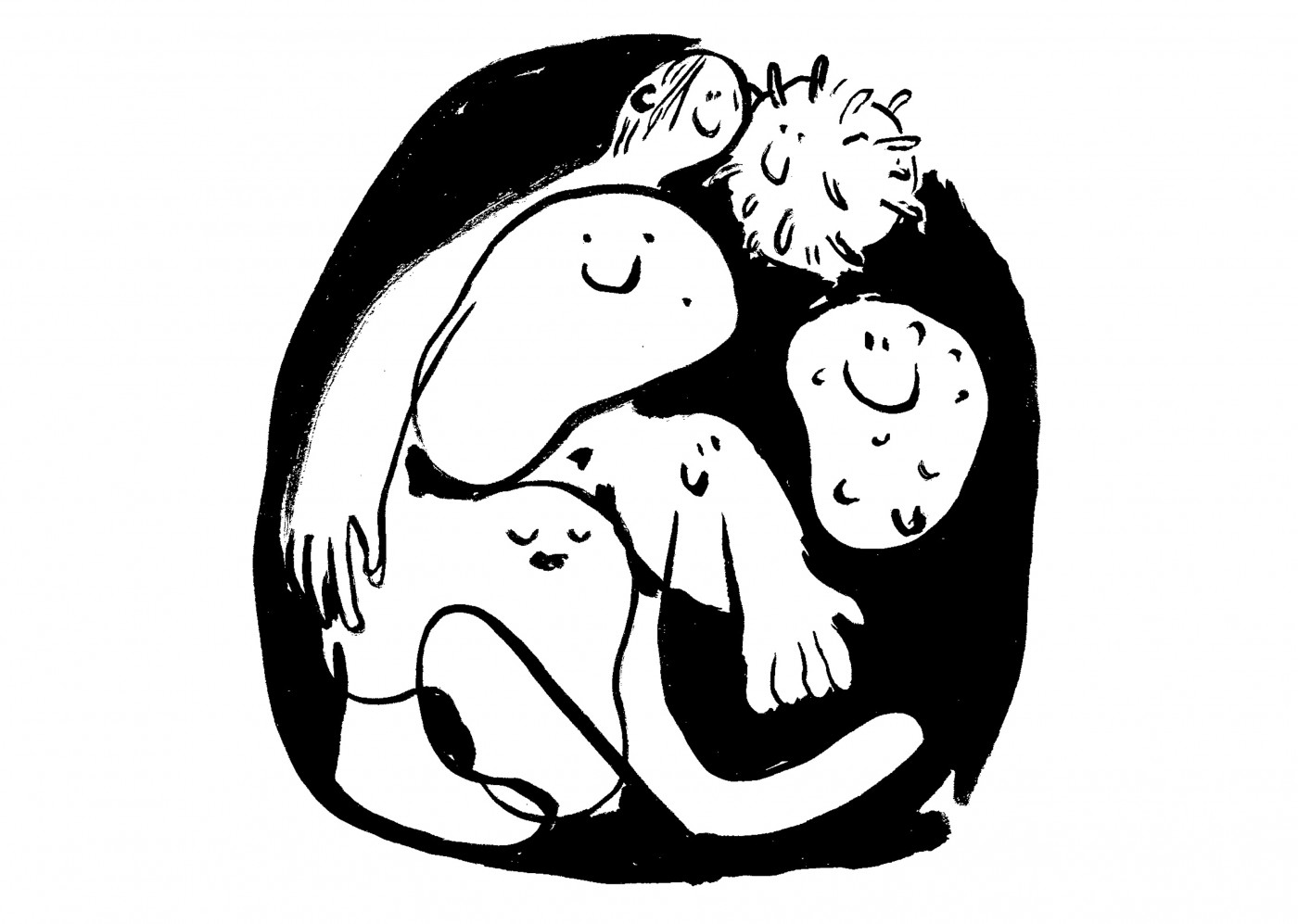Episode 01: Ala Tannir
Open Mic / Work & Social Distancing

Ala Tannir is an architect and architecture and design curator from Beirut. She is currently part of the curatorial team working toward the 17th Venice Architecture Biennale 2020, How Will We Live Together? Most recently, she co-organized the XXII Triennale di Milano entitled Broken Nature.
“For many months now, in my capacity as member of the curatorial team for the upcoming Venice Architecture Biennale, How will We Live Together?, I have been working independently, from my little apartment in New York. And while I’d been accustomed to making monthly or bimonthly now-antiquated trips to Cambridge, MA to convene with the rest of the team who are all based there, not much else has changed structurally for me in light of current events. That is not to say that the pandemic has not been completely disruptive to the routine I worked very hard to establish, as a total newbie to the work-from-home-force, in order not to go mad and keep healthy boundaries between the different areas of my life—where do I set up to work? When do I start, when do I stop? What do I wear? How do I keep or create live interactions with other humans during working hours when I am alone at home? A lot of the questions that many or most of us are grappling with now and that I thought I was on top of at this point, but that I funnily enough find myself asking again!
Right now, honestly, it feels like hours, days, and weeks have melted into one viscous blob without much definition, sluggishly moving from the kitchen, to the table, to the living room, and desk. I also find myself spending an unholy amount of time in bed—even to work (which is something I had banned myself from doing before all of this started)—inescapably staring at the wall which has the big 1.5 x 3 meters tall drawing I produced a few years ago for my research about the Mediterranean sea as a space for political and ecological resistance. Actually, a lot of what is going on today with the coronavirus pandemic is making me think back to that research, especially in how it calls on creative narratives to conjure up new political imaginations and think through the complex realities we are facing. Everywhere on the news these days we hear politicians and public officials declare war on this virus and invoke military language to mobilize people and industries to do their part. Here, Trump has even gone as far as dubbing himself a wartime president! Borders have been shut, asylum seeking processes halted. And while Europe, for example, had been making its external borders impermeable to incomers for decades, Schengen states are now quickly following suit with their internal borders too.
But does this fortification of walls stop the waves of migration during this time? Will it prevent the pandemic from reaching them? Of course not. What it does guarantee, however, is a greater marginalization of populations who are already at risk, a greater number of people trying to slither through via unofficial and even more precarious channels, and a greater number of people dying at the gates. And this attitude of each country fending for themselves goes against the very nature of the struggle we are facing today, which is global by definition. What nation states need to understand is that if someone gets sick in a detention center in Greece, or in a slum in Nairobi, or in the comfort of their own home in Venice, it is all equally a part of the equation that they have to deal with and treat as their own if they wish to overcome the pandemic. And so instead of isolationism, what we need to practice right now is better truly-international solidarity and collaboration among different communities around the world. The adoption of a changed attitude. A lot of these calls for a shift in how we do things as humans have been present in the past years in environmental as well as creative discourse.
In the initial stages of my research into migrants purposely abandoned and left to die in the Mediterranean, and the overpopulation of jellyfish in the same basin, I had set out to imagine some kind of weaponization of these two phenomena that would work to obstruct and disrupt the mechanics and sites of global capitalism (I don’t really have time here to get too much into it, but think about intentional jellyfish blooms that would clog up the cooling pipes of nuclear power plants, or take over beach resorts, for example, interrupting the accumulation of capital). But I quickly drifted away from this framework in favor of an interspecies alliance, since weapons and wars are singular events, and what I was looking for was a way to present a more holistic, long term understanding of the Mediterranean Sea as a space of resistance.
If we continue trying to mobilize people and highlight the sense of urgency by using the war metaphor, then we are not setting ourselves up for the aftermath of this situation. We are not preparing to build resilience. What we need is a different metaphor. In fact, what we need is not a metaphor at all; we need different ways of telling the story, of narrating the facts. Because the facts are that we are not at war. The coronavirus is not a conscious creature that has been strategizing in order to stage a take over. Other forms of life or non-life that don’t necessarily serve our purposes are not our enemies. We have just tipped the scale in the ways we have chosen to exist on the planet. We just need to set ourselves up for better equilibria, better alliances, better interrelations among ourselves and between us and the environment, and we need to enact better multi-species worlding.”